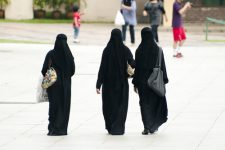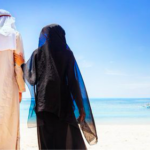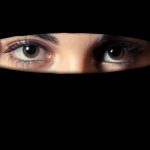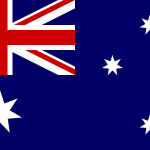Danish Women Defy Burqa Ban

A 28-year-old woman has become the first person in Denmark to be fined for wearing a face veil in a public place.
The woman was approached by another in a shopping centre who assaulted her and ripped off her face covering. When police arrived, they fined the veiled woman 1,000 Danish kroner ($210) and directed her to either remove the covering or leave the premises.
The woman elected not to remove the covering and returned home.
Burqa ban
Since 1 August 2018, the Danish “burqa Ban” has prohibited the full-body burqa and the niqab, which covers the face except the eyes.
The laws do not prevent face coverings which are for a “recognisable purpose”, such as protections from the cold and motorcycle helmets. A recognisable purpose does not include religious grounds, leading to claims of discrimination.
Indeed, the Danish parliament expressed the view that Muslim face coverings are against the values of the society. Conservative leader Pape Poulsen described the niqab as”incompatible with the values of Danish society or respect for the community”.
Women protest
Hundreds of Danish women protested against the new laws last week, saying they should have the right to wear what they like and expressing the view that the law will only alienate Muslim women – many of whom will choose to stay at home rather than go out uncovered.
Human rights group Amnesty International called the ban “a discriminatory violation of women’s rights … all women should be free to dress as they please and to wear clothing that expresses their identity or beliefs”.
Burqa bans around the world
There are currently 14 countries across the world with ‘burqa bans’.
Full body dress has been prohibited in France and Belgium since 2011, and in Austria since 2017, amid fears it may conceal bombs.
Critics say the prohibition has nothing to do with preventing terrorism, pointing out that anyone could wear a bomb under a trench coat or similar clothing if they wishes, and that terrorists are not concerned with their identity being revealed as they intend to blow themselves up anyone.
But the majority of people welcome the bans regardless, especially those on the far-right wing, many of whom have called for bans against Muslim immigration.
Others have expressed the view that full face coverings exemplify the subordination of women, while others point out that the use of the burqa and niqab are not supported by the Quran, which speaks only in general terms of female modesty and certainly does not requirement females to be fully covered.
Debate in Australia
In August 2017, a survey of 2,832 Australian residents found that a majority support some form of burqa ban. When asked, “Would you support or oppose of the Muslim cultural garment the burqa, being banned in public places?”, 57% responded that they would support or strongly support the idea.
A number of conservative politicians have also called for the ban, including Fred Nile, Cory Bernardi, Jacqui Lambie, Pauline Hanson and George Christensen.
And former prime minister Tony Abbott has described the dress as “confronting’’, “imprisoning’’ and “frankly an affront to our way of life’’.
Constitutional protection
Section 116 of the Commonwealth Constitution expressly prohibits discrimination on religious grounds, stating:
‘The Commonwealth shall not make any law for establishing any religion, or for imposing any religious observance, or for prohibiting the free exercise of any religion, and no religious test shall be required as a qualification for any office or public trust under the Commonwealth.’
However, constitutional lawyers have expressed the view that the protections are symbolic rather than practical.
In 1912 case of Krygger v Williams, the High Court decided that a person could not object to compulsory military service on religious grounds.
The court found the protection was only against government interference, not against positive acts that are inconsistent with religious belief. To many, it is a bizarre interpretation of the law which allows the government to do almost anything other than stop people from worshipping.
And in the 1997 ‘Stolen Generations Case’, the High Court upheld a 1918 ordinance which enabled the forcible removal of Indigenous Australian children from their families.
The court reasoned that the purpose of the ordinance was not to prohibit the free exercise of religion, even though that was its effect.
Academic Peter Edge explains that the nation’s highest court has made clear that the section is to “prevent legislation that has a prohibited purpose, rather than a prohibited effect.”
New South Wales passed legislation in 2011 requiring people to remove face coverings when entering prisons or courthouses.And law enforcement and correctional officers have been given the power to ensure they can identify a person wearing a face covering.







